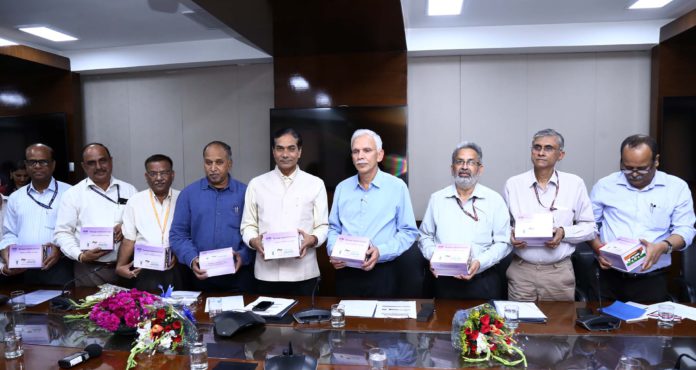New Delhi (NVI): To detect and fight back Japanese encephalitis and Bluetongue virus which are found in animals, the Indian Council of Agricultural Research (ICAR) along with Indian Veterinary Research Institute (IVRI), Izatnagar has developed two diagnostic kits under the ‘Make in India’ initiative.
The newly developed kits cost ten times lesser than the imported ones. As compared to the commercial kit available in the market at a price of Rs. 52,000, the ICAR-IVRI has developed kits which are available for the farmers at a minimal price of Rs. 5,000 only.
It is the indigenous technology that will not just help save foreign exchange but also has the potential to earn foreign exchange.
The diagnostic kits named as Bluetongue sandwich ELISA (sELISA) and the Japanese Encephalitis lgM ELISA was released by Animal Husbandry Secretary Atul Chaturvedi and T. Mahopatra DG, ICAR at Krishi Bhawan.
Addressing the gathering, Director General Mahopatra mentioned that each kit is meant for testing around 45 samples and briefed the main characteristics of the two Kits.
Talking about the Japanese Encephalitis (JE) ELISA Kit (IgM) for Swine, Mohapatra said, “JE is a re-emerging viral zoonotic disease leading to death of children every year in the country. It is really helpful for assessing the active infection of JE virus in the swine population which predicts the outbreak in humans.”
Highlighting the key features of another Kit “Bluetongue: Sandwich ELISA for detection of Antigen”, Mohapatra said, “Bluetongue (BT) virus is an insect-transmitted viral disease of domestic and wild ruminants that includes the camelid species. The disease is widespread among the sheep, goats, cattle, buffaloes and camels in the country. With the help of the Kit, Bluetongue Virus can be controlled.”
“Apart from the vaccination, the early diagnosis and isolation of the infected animals are one of the commonly suggested preventive methods for controlling the spreading of the disease,” he added.
Applauding the joint initiative by the ICAR and the Department of Animal Husbandry, Atul Chaturvedi said, “Release of these two Kits will definitely be beneficial for not only the farming community but the society as a whole.”
Citing the number of casualties caused by the deadliest diseases in the societies every year, the Secretary mentioned that the Kits will prove to be a real helping hand.
“The kits have been prepared with care. Before the official launching of the Kits, proper research was carried out by the scientists of both the organizations. The Kits were also tested against the mentioned virus and diseases caused by the animals for their validity,” said the additional Secretary Sushil Kumar.
“Indian Veterinary Research Institute emphasized on the measures to be adopted for controlling the spread of various harmful diseases by the birds, pigs and other animals. These Kits will provide help in achieving our targets effectively and efficiently,” said R.K. Singh.
He stressed that humans are more prone to transmittable diseases and expressed his concerns about the various cases in which the children are mostly affected by the diseases as compared to the younger or older ones.
–PS











